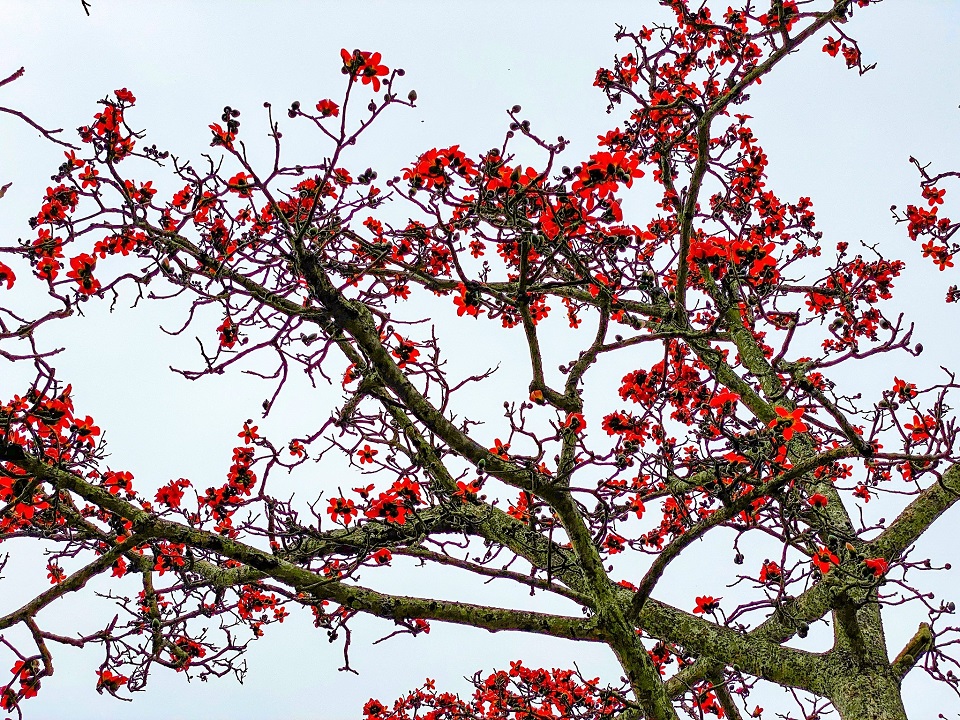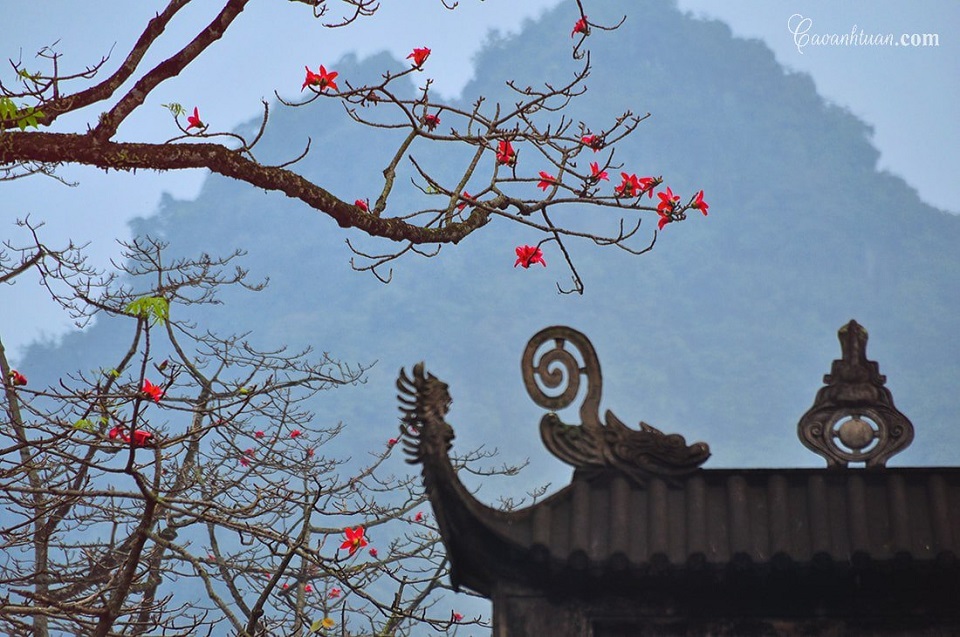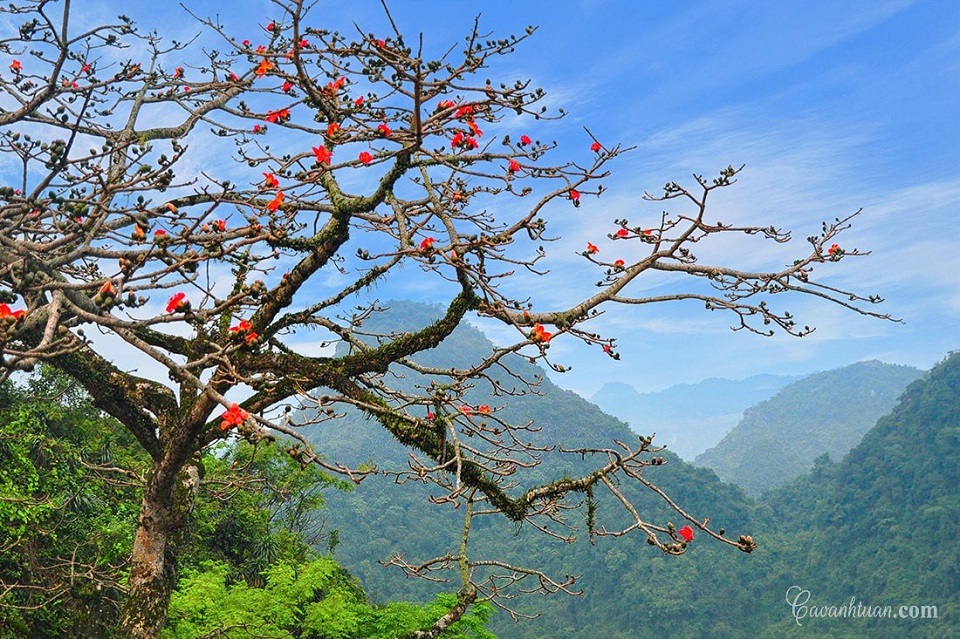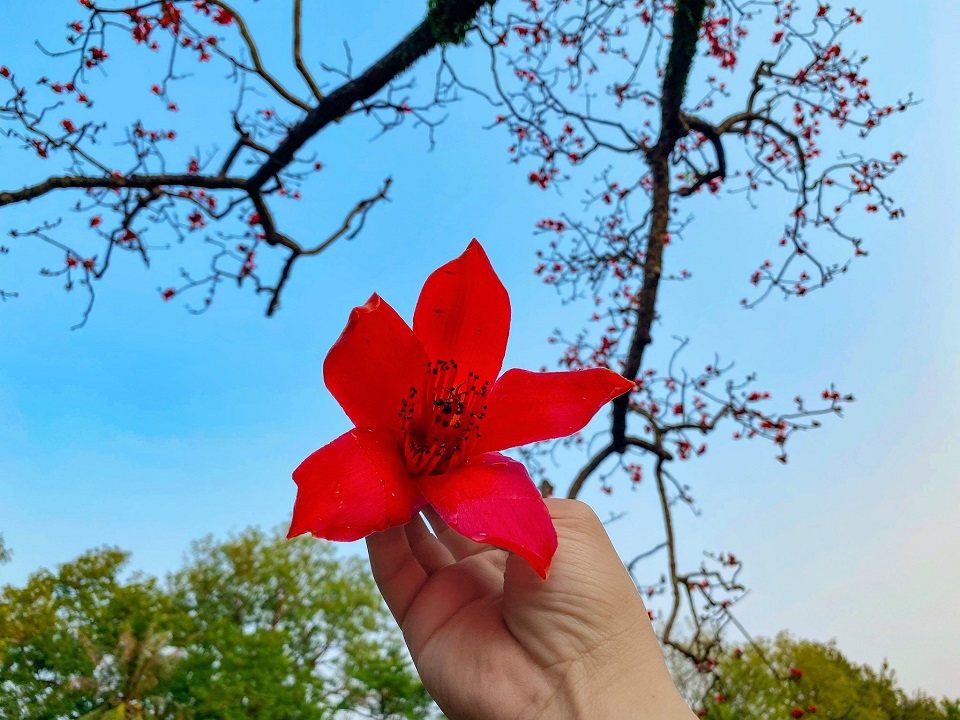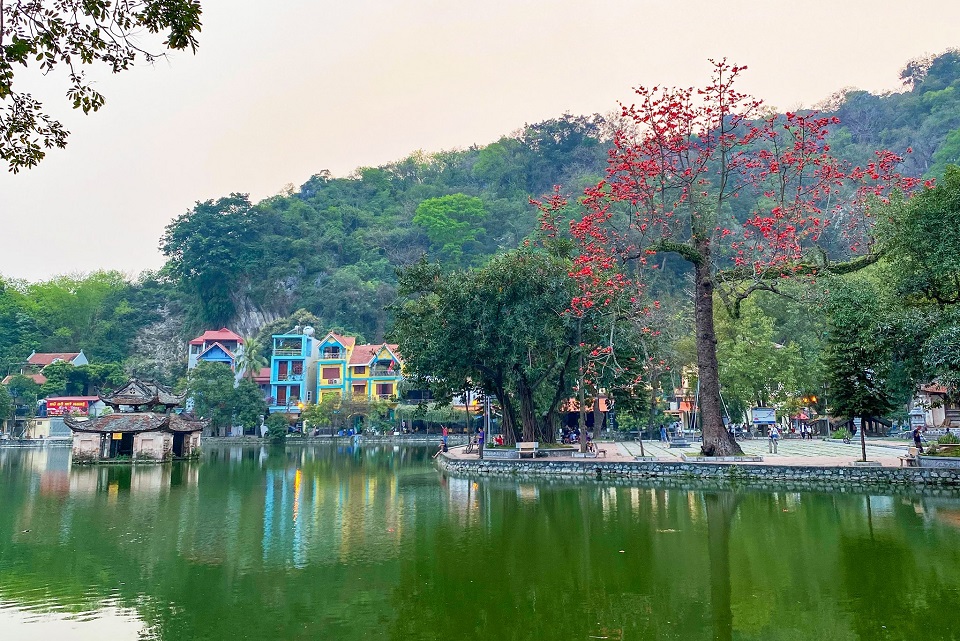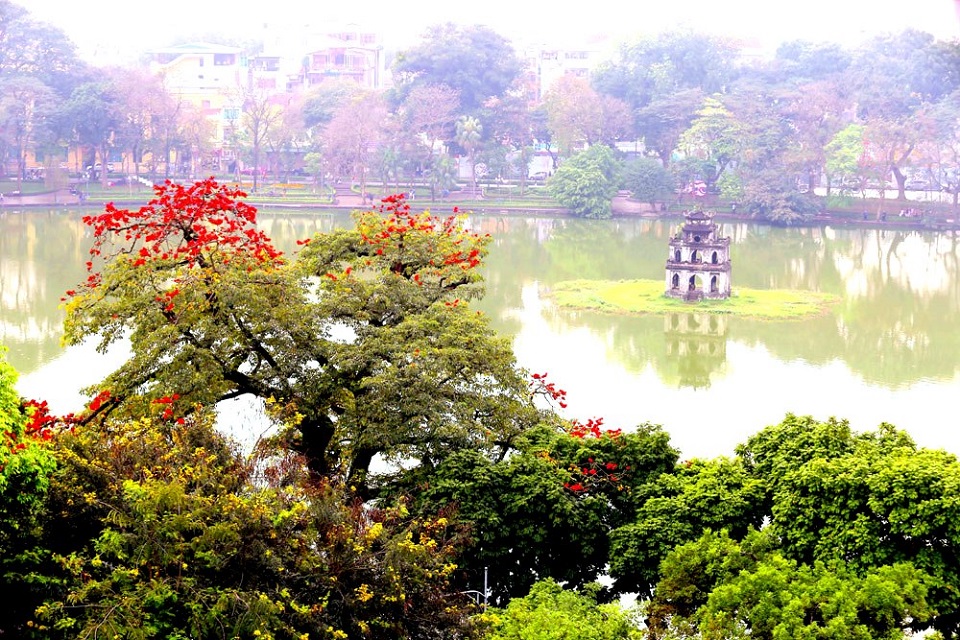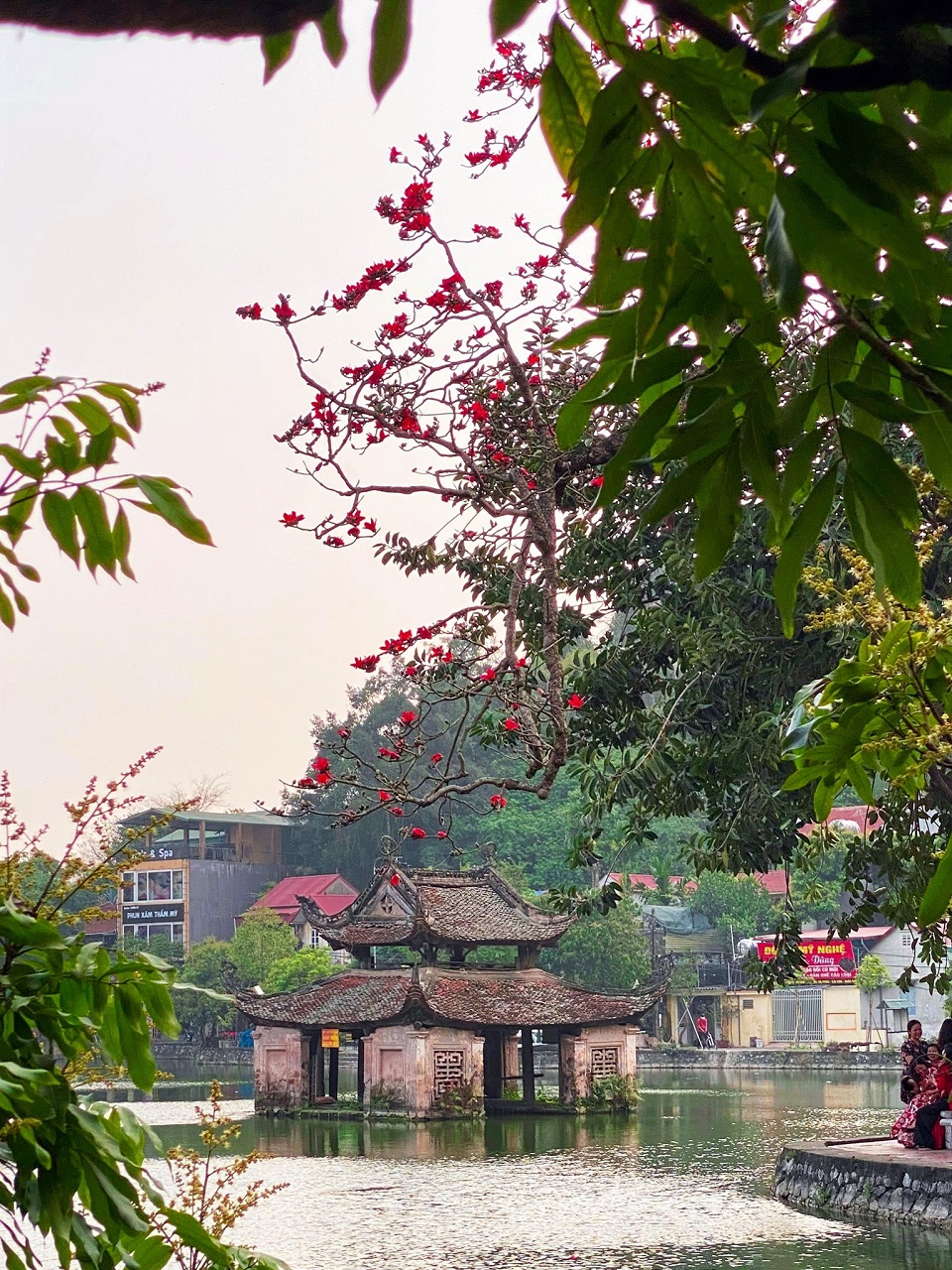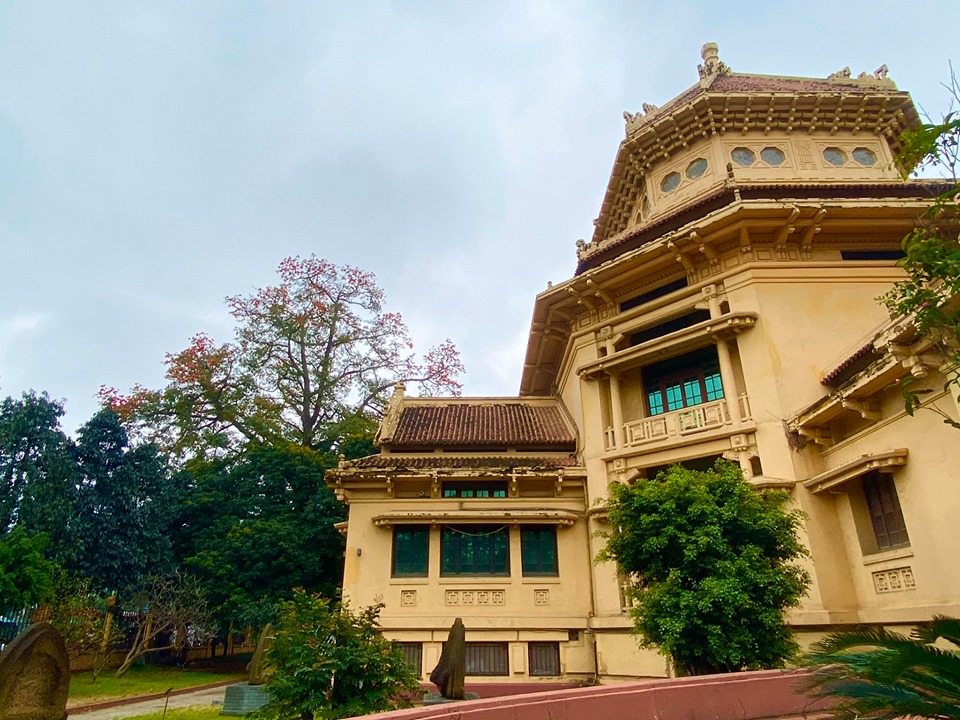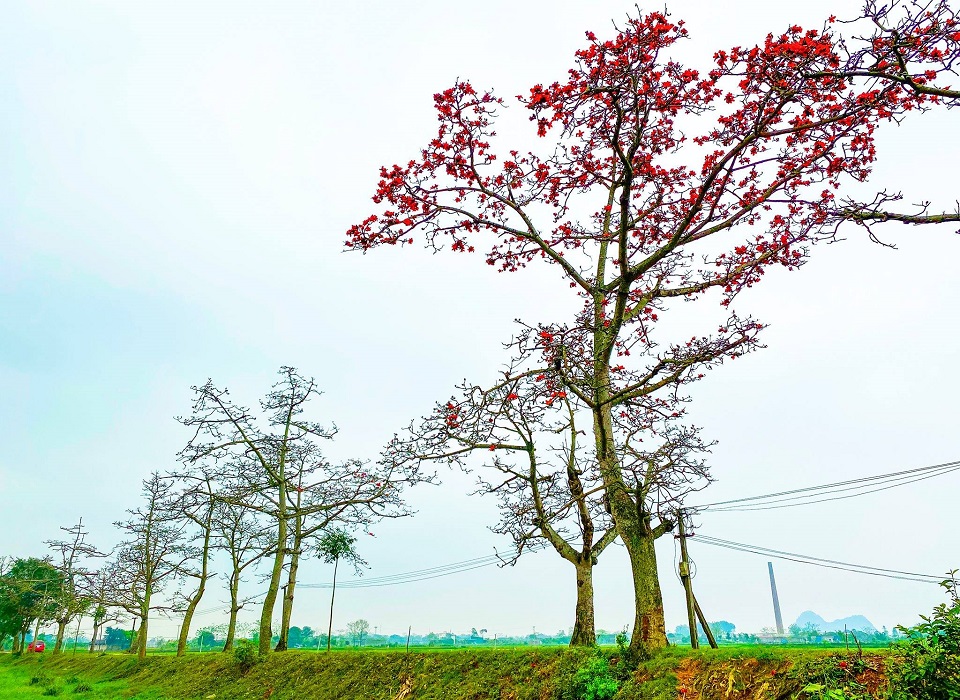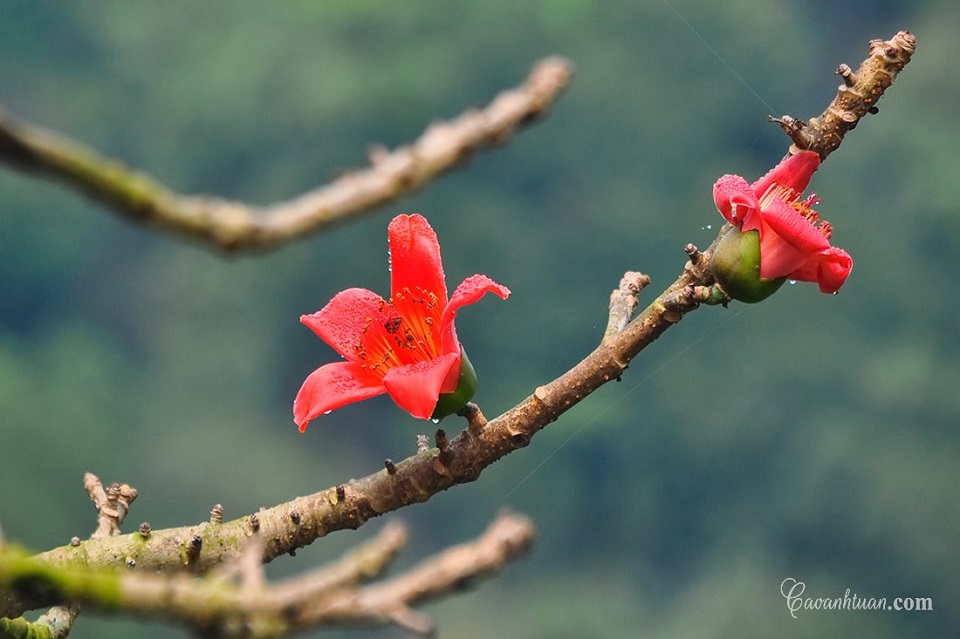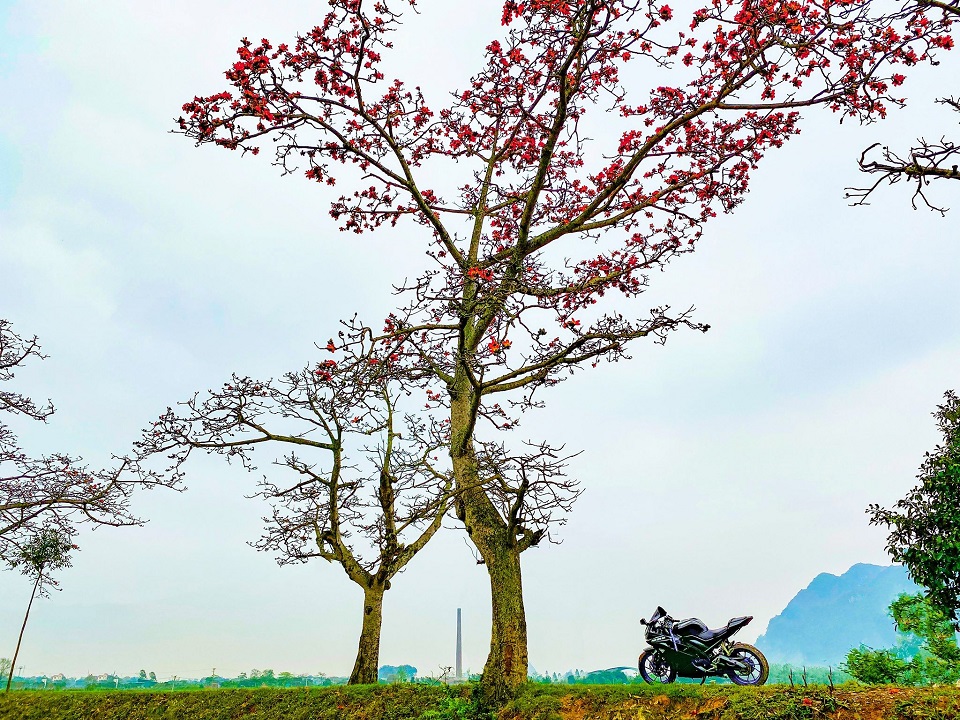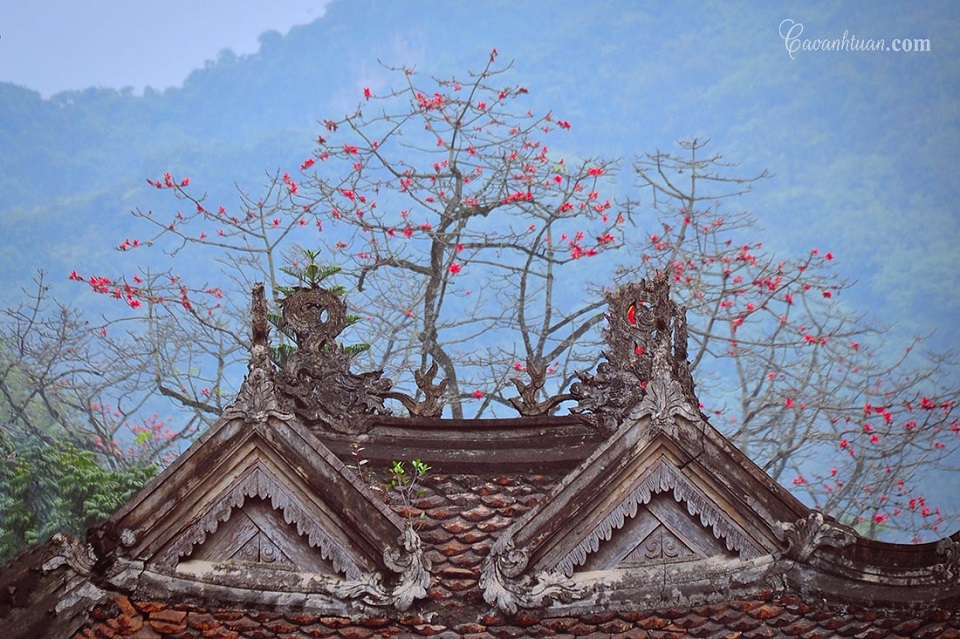Each season of Hanoi has its own charm thank for the trees that are planted around the city. When the warm spring sunshine begins to light the streets that is also the time when fresh flowers bloom brilliantly in all parts of Hanoi.
|
| And, March is the time for Hoa Gao (literally rice flower in English), a loving Vietnamese name for Bombax Ceiba - is in full bloom. All the old leaves fall down, leaving the tree with only flowers. The trees now look like a burning torch with hundreds of red fires. Photo: Yeu Ha Noi. |
|
Hoa Gao is also called by many other beautiful names in English such as Malabar silk-cotton tree, red silk-cotton, red cotton tree or kapok. |
|
In Vietnam, Rice flower is associated with the spring in the northern parts of the country. For those who have heard of this fantastic flaming red flower, let visit Hanoi to see it with your own eyes in March. |
|
| The blossoms have five big petals, and bloom in March and April when it gets warmer with drizzle. Photo: Yeu Ha Noi |
|
The stunning beautiful flowers are also known as Moc Mien or Po Lang in Vietnamese. Photo: Yeu Hanoi |
|
| The bright red blossoms on high bare branches offer a postcard scene of Hoan Kiem Lake. Photo: Ho Ha |
|
| The Hoa Gao tree in Thay Pagoda, Sai Son Mountain, Quoc Oai district, Hanoi. Photo: Yeu Ha Noi |
|
| The old rice flower tree inside the National Museum of History is said to be nearly 100 years old. Photo: Duy Khanh. |
|
The big blossom come out almost at once, setting the whole trees in living flames. Photo: Yeu Ha Noi |
|
| The blossoms remain on the branches for a few weeks before falling off, giving way to new leaves. |
|
| Some recommended places to admire Hoa Gao in Hanoi are Hoan Kiem Lake, Giai Phong – Phuong Mai crossroads, the National Museum of Vietnamese History, Thay Pagoda, Huong Pagoda and Doan Nu village of An My commune, My Duc district, Hanoi. Photo: Yeu Ha Noi. |
|
| The trees are planted widely in northern villages. The images of dazzling red silk-cotton trees by the side of communal houses, temples, pagodas, river dykes and by the rice fields have become inspirations for photos, paintings, songs and literature. |

